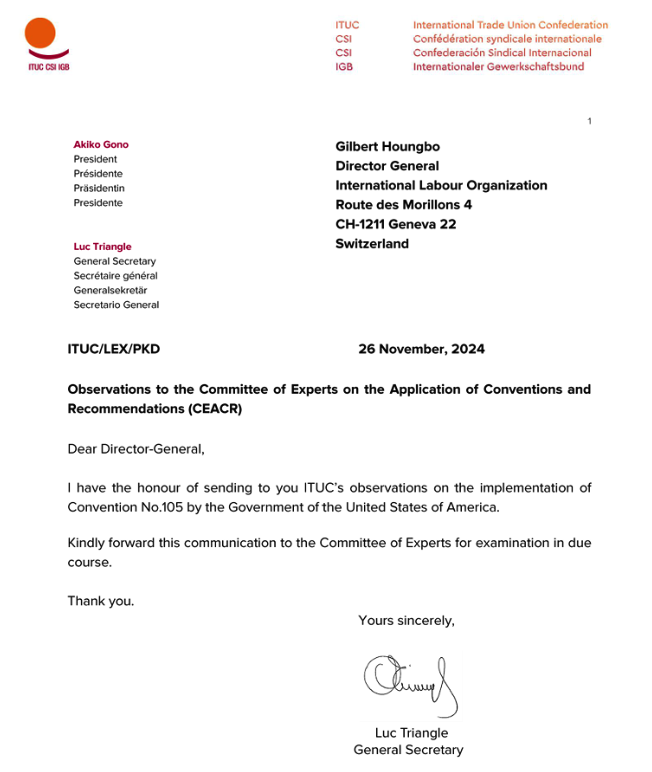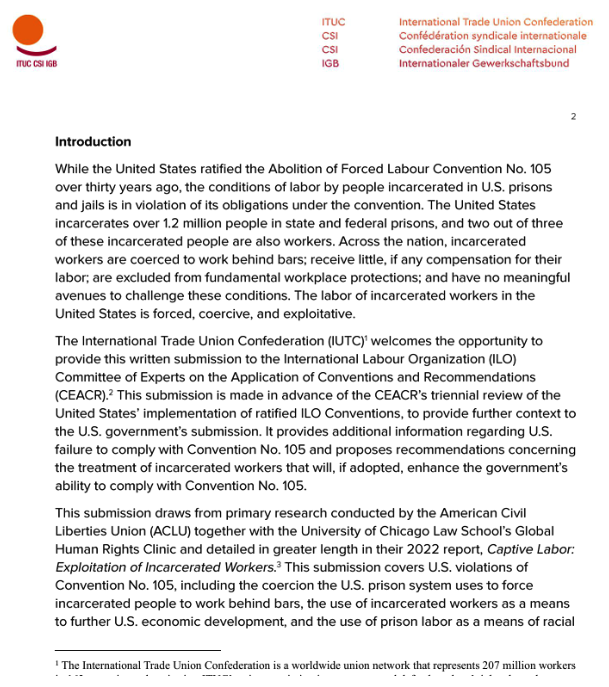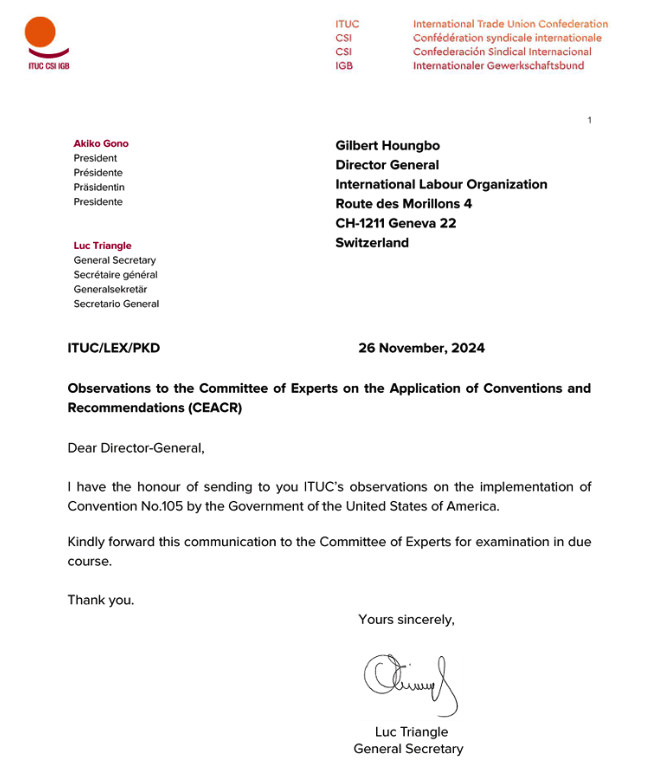
Recent reports and growing activism are shedding light on the pervasive issue of forced labor within the United States prison system, where hundreds of thousands of incarcerated individuals work for minimal or no pay while generating significant revenue for state governments and private corporations. This practice has drawn international scrutiny, with organizations like the International Trade Union Confederation (ITUC) raising concerns about the U.S.’s adherence to global labor standards, according to a report obtained by the Washington Post.
The Scope of the Problem: Low Wages, High Profits
Data from the Bureau of Justice Statistics indicates that nearly 800,000 prisoners across the U.S. are engaged in various forms of labor, often maintaining the very institutions in which they are held. This work spans a wide range of tasks, from cooking and cleaning to construction and maintenance. Despite the essential services they provide, many prisoners receive no compensation for their labor.
In states such as Alabama, Arkansas, Florida, Georgia, Mississippi, South Carolina, and Texas, prisoners are not paid for the vast majority of their work assignments. For those who do receive wages, the average hourly rate for non-industrial prisoners is remarkably low, ranging between a staggering $0.13 and $0.52 per hour. Furthermore, prisons have been known to deduct up to 80% of these meager wages to cover fines, taxes, family support, and housing fees.
This undercompensated labor translates into substantial profits. In 2021 alone, prison labor nationwide generated over $2 billion in goods and services for states. Federal prisons, operating under programs like UNICOR, also reported net sales revenue exceeding $404 million in the same year. Many states mandate that their agencies and public institutions purchase manufactured goods, including furniture, cleaning supplies, and uniforms, directly from state correctional industries.
Corporate Involvement and Exploitation Tactics
Beyond state-run industries, private companies also benefit from the prison labor system. Through initiatives such as the Prison Industry Enhancement Certification Program (PIECP), private entities can hire incarcerated individuals directly or acquire goods and services from correctional industries at costs significantly lower than those found in the open market.
Notable companies, including Apple, KFC, PepsiCo, and P&G, have been identified as having utilized prison labor or purchased products from correctional industries. Some private companies participating in PIECP have reportedly exploited loopholes to avoid paying prevailing wages. One documented tactic involves dividing incarcerated workers into two groups: one that produces components of a product and another that assembles them, with only the final assembly group receiving the prevailing wage.
Historical Roots and Disproportionate Impact
The current system of prison labor has deep historical roots, drawing parallels to post-Civil War convict leasing programs and early 20th-century chain gangs. These historical systems disproportionately subjected Black men to brutal labor conditions under laws like the Black Codes. This legacy persists today, with unpaid or underpaid prison labor continuing to disproportionately affect people of color. For instance, in Minnesota, Black residents constitute approximately 6% of the state’s population but represent nearly 37% of its prison population.
During the COVID-19 pandemic, incarcerated individuals were compelled to work in dangerous conditions, such as staffing mobile morgues in Texas, for as little as $2 per hour, highlighting the ongoing exploitation.

Calls for Reform and Growing Activism
The ITUC, in collaboration with organizations like the American Civil Liberties Union and the University of Chicago’s Global Human Rights Clinic, has formally submitted observations to the International Labor Organization (ILO). These submissions emphasize the United States’ ongoing violations of ILO Convention No. 105, which prohibits forced labor, despite the U.S. having ratified it over 30 years ago.
The ITUC’s call for urgent reforms includes the elimination of coerced prison labor, the implementation of fair wages for incarcerated workers, and the extension of comprehensive labor protections within correctional facilities. The overarching goal is to align U.S. practices with international standards and dismantle the racial and economic inequities embedded in the prison labor system.
In Minnesota, the movement for reform is gaining significant traction. The Minnesota Incarcerated Workers Organizing Committee (MIWOC) recently hosted an “End Slavery Day on the Hill” rally at the State Capitol, gathering hundreds of participants to demand an end to forced labor. The event aimed to pressure lawmakers to pass the 2025 Bill to End Slavery in Minnesota, which seeks to reclassify prisoners as workers with the right to employment.
The rally also brought attention to MINNCOR Industries, a state-run program within the Minnesota Department of Corrections, which provides job training and employment for incarcerated individuals. The University of Minnesota, a past purchaser of goods and services from MINNCOR, faced criticism from students and activists over the low wages (as low as 25 cents per hour) paid to incarcerated workers. This advocacy led to the University of Minnesota canceling its contract with MINNCOR.
As civil rights advocate Nekima Levy Armstrong passionately stated at the rally, “These companies are getting rich on the people who have been disenfranchised, marginalized, treated as less than human.” The growing support from lawmakers, advocates, and communities across the U.S. suggests a rising momentum for change, with states like Minnesota potentially setting a new standard for incarcerated workers’ rights. The movement underscores a collective resolve to hold corporations and the state accountable for systemic injustices rooted in the prison labor system.
This post was originally published on this site be sure to check out more of their content.









